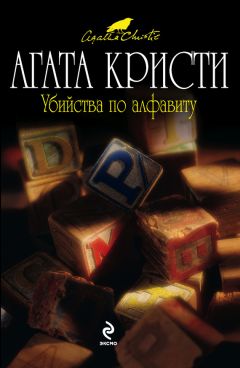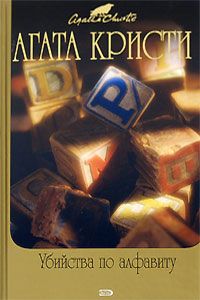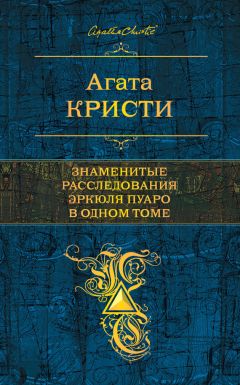Agatha Christie - Английский язык с Агатой Кристи. Убийства по алфавиту
"It is too cruel (это слишком жестоко). Oh, it is too cruel," cried Mrs. Barnard tearfully (о, это слишком жестоко — /со/ слезами вскричала миссис Барнард; tear — слеза). "The cruelest thing (это самая жестокая вещь) that ever was, it is (/из всех/ что когда-либо были, это)."
Her voice had a faintly sing-song intonation (ее голос имел легкую напевную интонацию) that I thought for a moment was foreign (которая, /как/ я на мгновение подумал, была иностранной) till I remembered the name on the gate (пока я /не/ вспомнил название на воротах /дома/) and realized (и /не/ осознал) that the "effer wass" of her speech was in reality proof of her Welsh origin (что это «когдааа-лллибо» в ее речи было, на самом деле, подтверждением ее валлийского происхождения).
cruel [ˈkrʋǝl], sing-song [ˈsɪŋsɔŋ], origin [ˈɔrɪʤɪn]
He patted her shoulder and drew her down into a chair.
"The superintendent was very kind," said Mr. Barnard. "After he'd broken the news to us, he said he'd leave any questions till later when we'd got over the first shock."
"It is too creel. Oh, it is too cruel," cried Mrs. Barnard tearfully. "The cruelest thing that ever was, it is."
Her voice had a faintly sing-song intonation that I thought for a moment was foreign till I remembered the name on the gate and realized that the "effer wass" of her speech was in reality proof of her Welsh origin.
"It's very painful, madam (это очень болезненно, мадам), I know," said Inspector Crome. "And we've every sympathy for you (и мы все очень вам соболезнуем: «и у нас каждое = всякое/полное сочувствие для вас»), but we want to know all the facts we can (но мы хотим знать все факты, которые мы сможем /узнать/) so as to get to work as quick as possible (так, чтобы приступить к работе как можно скорее)."
''That's sense, that is," said Mr. Barnard (это /имеет/ смысл, да), nodding approval (кивая /с/ одобрением; to approve — одобрять).
"Your daughter was twenty-three (вашей дочери было двадцать три), I understand (/как/ я понимаю). She lived here with you (она жила здесь с вами) and worked at the Ginger Cat café (и работала в кафе «Рыжий кот»), is that right (это верно)?"
"That's it (это так)."
"This is a new place, isn't it (это новое место, не так ли)? Where did you live before (где вы жили раньше)?"
"I was in the ironmongery business in Kennington (я занимался торговлей скобяными изделиями в Кеннингтоне; monger — продавец, торговец; iron — железо; тот или иной сорт железа, стали). Retired two years ago (вышел на пенсию два года назад). Always meant to live near the sea (всегда намеревался жить рядом с морем; to mean — иметь в виду, намереваться)."
ironmongery [ˈaɪǝnˌmʌŋɡ(ǝ)rɪ], approval [ǝˈpru:v(ǝ)l], daughter [ˈdɔ:tǝ]
"It's very painful, madam, I know," said Inspector Crome. "And we've every sympathy for you, but we want to know all the facts we can so as to get to work as quick as possible."
''That's sense, that is," said Mr. Barnard, nodding approval.
"Your daughter was twenty-three, I understand. She lived here with you and worked at the Ginger Cat café, is that right?"
"That's it."
"This is a new place, isn't it? Where did you live before?"
"I was in the ironmongery business in Kennington. Retired two years ago. Always meant to live near the sea."
"You have two daughters (у вас две дочери)?"
"Yes. My elder daughter works in an office in London in the City[20] (моя старшая дочь работает в офисе в Сити в Лондоне)."
"Weren't you alarmed (вы не встревожились; alarm — тревога) when your daughter didn't come home last night (когда ваша дочь не пришла домой прошлой ночью)?"
"We didn't know she hadn't," said Mrs. Barnard tearfully (мы не знали, что она не /пришла/, — сказала /со/ слезами миссис Барнард). "Dad and I always go to bed early (отец и я всегда рано ложимся /спать/; to go to bed). Nine o'clock's our time (девять часов — наше время). We never knew (мы даже и не узнали: «мы никогда /не/ знали») Betty hadn't come home (что Бетти не пришла домой) till the police officer came — (пока офицер полиции /не/ пришел) and said (и /не/ сказал) — and said — "
She broke down (она прервалась).
"Was your daughter in the habit of (была /ли/ у вашей дочери привычка) — er (э) — returning home late (возвращаться домой поздно)?"
alarm [ǝˈlɑ:m], police [pǝˈli:s], habit [ˈhæbɪt]
"You have two daughters?"
"Yes. My elder daughter works in an office in London in the City."
"Weren't you alarmed when your daughter didn't come home last night?"
"We didn't know she hadn't," said Mrs. Barnard tearfully. "Dad and I always go to bed early. Nine o'clock's our time. We never knew Betty hadn't come home till the police officer came and said — and said — "
She broke down.
"Was your daughter in the habit of — er — returning home late?"
"You know what girls are nowadays, inspector (вы знаете какие нынче девушки, инспектор)," said Barnard. "Independent (независимые; to depend — зависеть), that's what they are (вот они какие). These summer evenings they're not going to rush home (этими = такими летними вечерами они не собираются торопиться домой). All the same, Betty was usually in by eleven (однако Бетти обычно была дома к одиннадцати; to be in — быть внутри; быть дома)."
"How did she get in (как она попадала домой)? Was the door open (дверь была открыта)?"
"Left the key under the mat (оставляли ключ под ковриком; to leave) — that's what we always did (это то, что мы всегда делали)."
"There is some rumour (есть такой слух), I believe (я полагаю), that your daughter was engaged to be married (что ваша дочь была помолвлена, чтобы выйти замуж)?"
"They don't put it as formally as that nowadays," said Mr. Barnard (они не относятся к этому так формально в настоящее время).
key [ki:], rumour [ˈru:mǝ], engage [ɪnˈɡeɪʤ]
"You know what girls are nowadays, inspector," said Barnard. "Independent, that's what they are. These summer evenings they're not going to rush home. All the same, Betty was usually in by eleven."
"How did she get in? Was the door open?"
"Left the key under the mat — that's what we always did."
"There is some rumour, I believe, that your daughter was engaged to be married?"
"They don't put it as formally as that nowadays," said Mr. Barnard.
"Donald Fraser his name is (Дональд Фрейзер — его имя), and I liked him (и он мне нравился). I liked him very much," said Mrs. Barnard (мне он очень нравился). "Poor fellow (бедный парень), it'll be terrible for him (это будет ужасно для него) — this news (эта новость). Does he know yet (он уже знает), I wonder (интересно: «я задаюсь вопросом»)?"
"He works in Court & Brunskill's (он работает в «Корт-энд-Бранскилл»), I understand (/как/ я понимаю)."
"Yes, they're the estate agents (это агентство по /продаже/ недвижимости)."
"Was he in the habit of meeting your daughter most evenings after her work (была ли у него привычка встречать вашу дочь по вечерам после ее работы: «большинство вечеров после ее работы»)?"
"Not every evening (не каждый вечер). Once or twice a week would be nearer (один или два раза в неделю, скорее: «будет ближе = точнее сказать»; near — ближний; скорый)."
"Do you know if she was going to meet him yesterday (вы знаете, собиралась ли она встречаться с ним вчера)?"
agent [ˈeɪʤ(ǝ)nt], nearer [ˈnɪǝrǝ], once [wʌns]
"Donald Fraser his name is, and I liked him. I liked him very much," said Mrs. Barnard. "Poor fellow, it'll be terrible for him — this news. Does he know yet, I wonder?"
"He works in Court & Brunskill's, I understand."
"Yes, they're the estate agents."




